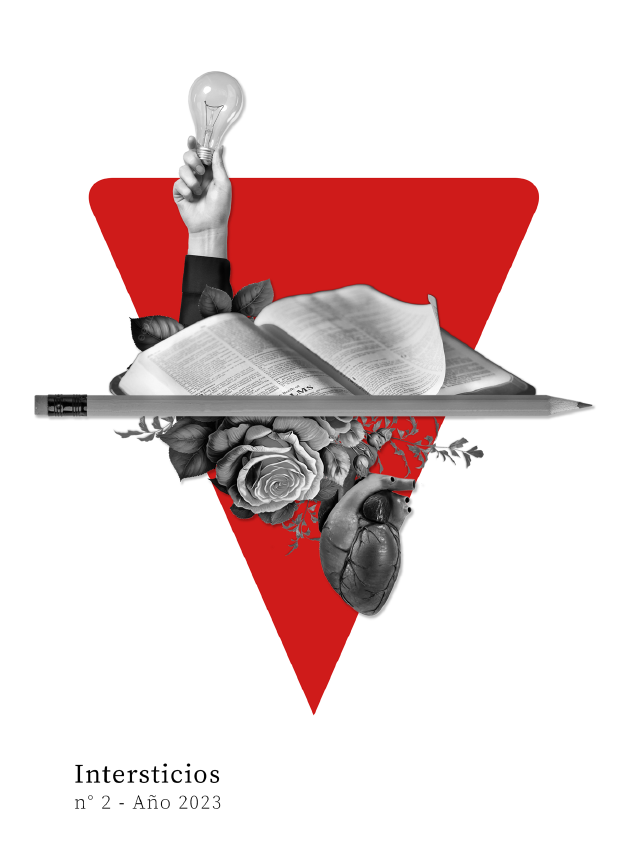Behind the red card and the whistle - Mental Strength in the professional soccer referees in the city of Salta
Abstract
The present study aims to describe an approximation of Mental toughness (Loehr, 1990) in professional Soccer referees in the City of Salta. The individual characteristics, the socio-sports context in which they are located and the response they adopt on the playing field are taken into account from a broad perspective (Rosado, Fonseca, & Serpa, 2013).
For such a study, a qualitative, exploratory and grounded theory study project were developed. Individual interviews and a group interview were applied as tools. The results obtained indicate that Mental toughness, as a meta-competency in sport, takes on different aspects with other sports subjects.
The social and sports context influences in the exercise of the refereeing role, achieving or not the expected performance. So, the strategic, tactical, physical and psychological preparation is important for each referee to overcome the several sports situations of the Federal Amateur Regional Tournament.
Consequently, a series of psychological resources in common with athletes are dynamically integrated, such as self-knowledge, motivation, self-control, confidence and concentration. Other resources are also dynamically integrated such as attention, experiential learning, game reading, responsibility and leadership, decision-making, communication, self-distancing and group cohesion among the most outstanding.
Downloads
References
Brandao, R., Serpa, S., Krebs, R., Araujo, D. y Machado, A. (2011). El significado de arbitrar: percepción de jueces de fútbol profesional. Revista de Psicología del Deporte, 20(2), 275-286.
Buceta, J. M., Del Pino, D., Gimeno, F., García-Aranda, J. M. y Ruiz Caballero, J. A. (2010). Necesidades Psicológicas de los árbitros de fútbol de alta competición. En J. Ruiz Caballero, & M. E. Navarro Valdivieso. Árbitro de fútbol, arbitraje y juicio deportivo. Dykinson.
Connaughton, D., Hanton, S., Jones, G. y Wadey, R. (2008). Mental toughness research: key issues in this area. International Journal of Sport Psychology, 39(3), 192-204.
Florean, A. (2 de Febrero de 2015a). Prepararse para el arbitraje. https://http://psicologosdeldeporte.com/prepararse-para-el-arbitraje/
Florean, A. (15 de Marzo de 2015b). Arbitraje, estrés y rendimiento. (A. d. Argentina, Ed.) http://psicologosdeldeporte.com//arbitraje-estres-y-rendimiento/
Giesenow, C. (2011). Entrenando tu fortaleza mental para el deporte, preparación psicológica para sobresalir bajo presión. Claridad.
Giesenow, C. (2015). ¿De qué hablamos cuando hablamos de fortaleza mental? Una revisión conceptual. Asociación de Psicología del Deporte Argentina. Psicodeporte, 22(21), 13 - 17.
González-Oya, J. L. (2006a). Psicología aplicada al árbitro de Fútbol. Características psicológicas y su entrenamiento. Wanceulen editorial deportiva S.L.
González-Oya, J. L. (2004a). Características psicológicas en árbitros de fútbol. Tesis doctoral no publicada.
González-Oya, J. L. (2006b). Aproximación a la violencia en el fútbol y en el arbitraje. Revista Iberoamericana de Psicología del Ejercicio y del Deporte, 1(2), 29-44.
González-Oya, J. L. y Dosil, J. (2004b). Características psicológicas de los árbitros de fútbol de la comunidad autónoma gallega. Cuadernos de Psicología del Deporte, 4(1 y 2), 53 - 66.
Guillén, F. y Jiménez Betancort, H. (2001). Características deseables en el arbitraje y el juicio deportivo. Revista de Psicología del deporte, 10(1), 23-34.
Guillén, F., & Feltz, D. L. (18 de Febrero de 2011). A conceptual model of referee efficacy. Frontiers in Psychology, 2(25), 1-5.
Jiménez Martín, P. (2020). Fortaleza Mental en el Deporte - ¿Qué dicen las investigaciones?. UPM-Press.
Loehr, J. E. (1990). Fortaleza mental en el deporte, como alcanzar la excelencia atlética. (P. Wightman, Trad.). Planeta.
Loehr, J. E. (1994). The new toughness training for sports. Pluma.
López Fernández, S. (2008). Nuevos espacios y desafíos para la psicología deportiva: Los árbitros profesionales de fútbol. En J. Díaz, I. Díaz, & J. Dosil (Ed.), La psicología del deporte en Iberoamérica: consolidando la Psicología del Deporte Iberoamericana (pp.137 - 142). Sociedad Iberoamericana de Psicología del Deporte.
Neil, R., Bayston, P., Hanton, S., & Wilson, K. (2013). The influence of stress and emotions on association football referees decision-making. Sport and Exercise Psychology Review, 9(2), 22-41.
Roffé, M. (2005). Fútbol de presión, Psicología aplicada al deporte. Lugar Editorial.
Rosado, A., Fonseca, C., y Serpa, S. (2013). Robustez mental: uma perspectiva integradora. Revista de Psicología del Deporte, 22(2), 495-500.
Sánchez Gómez, J., Castillo Viera, E., Fernández Espínola, C., & Serrat Reyes, S. (2019). Acoso laboral en el arbitraje de fútbol. Revista de Psicología Aplicada al Deporte y al Ejercicio Físico, 4(18), 1-9.
Soriano, G., Ramis, Y., Torregrossa, M., & Cruz, J. (2019). El lado positivo del Arbitraje: percepción de Apoyo Organizacional, Motivación y Compromiso. Revista de Psicología del Deporte, 28(1), 41-50.
Uchua, F. E. (2020). Psicología en el Fútbol. Obtenido de Psicología del deporte: http://psicologiadeldeporte.space/futbol/psicologia-en-el-futbol/
Urra Tobar, B., Nuñez Corrales, C., Oses Lillo, J. y Sarmiento Droguett, G. (2018). Variables psicológicas influyentes en el desempeño de árbitros de FIFA: un estudio cualitativo. Revista de Psicología Aplicada al Deporte y al Ejercicio Físico, 3(15), 1-11.
Weinberg, R. S., & Gould, D. (1996). Foundations of Sport and Exercise Psychology. (J. Soler, Trad.). Ed. Ariel.
Copyright (c) 2022 Intersticios

This work is licensed under a Creative Commons Attribution-NonCommercial-ShareAlike 4.0 International License.






